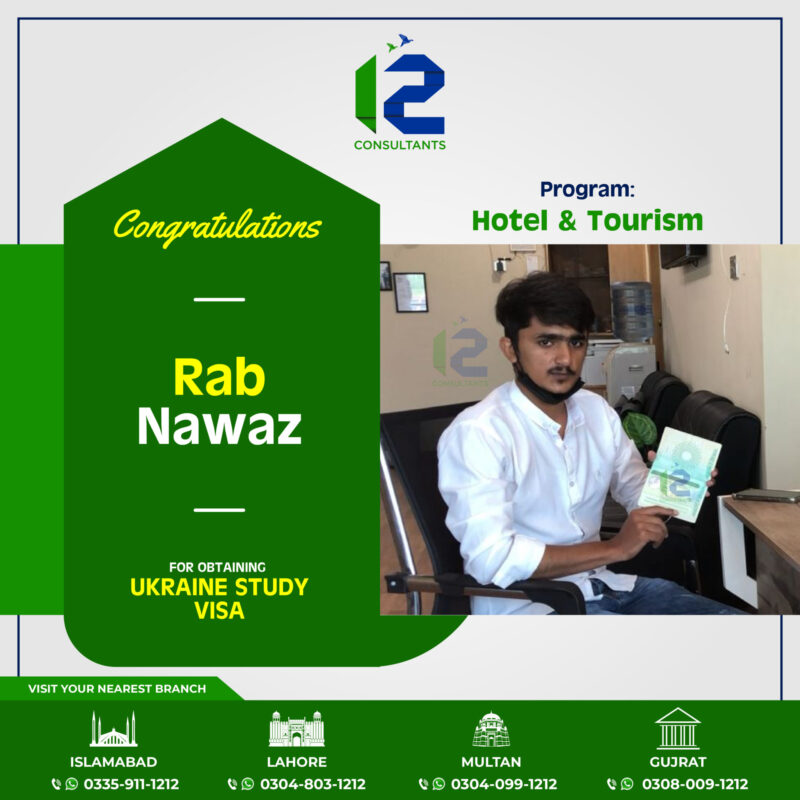

Study MBBS in Hungary 2024 | Tuition Fee | Visa Guide
Hungary, with its rich history, vibrant culture, and excellent educational facilities, stands as an appealing choice for international students aspiring to pursue a medical career. Understanding the intricacies of the admission process is vital for those wishing to embark on this fulfilling journey. This guide provides a comprehensive overview of the MBBS admission criteria for studying in Hungary.
Study in Hungary - Basic Guide
| Location | Central Europe, European Union Member. |
| Currency | Hungarian Forint (HUF). |
| Language | Hungarian (Official), Many Programs in English. |
| Work Allowed | Part-time jobs available for students. |
| Global Recognition | Internationally recognized degrees. |
| Tuition Fees | Affordable, Varies by Program and University. |
| Accommodation | Costs vary, HUF 40,000 – 150,000/month. |
| Living Expenses | Moderate, HUF 80,000 – 200,000/month. |
| Intakes | Mainly September, Some in February. |
| Visa Processing | Typically 1-3 months. |
| Application Fee | Varies, Usually HUF 10,000 – 30,000. |


Best Universities in Hungary
Hungary has several universities that offer medical education, including MBBS equivalents. Below are details for some of the universities in Hungary known for their medical programs:
-
Semmelweis University: Semmelweis University, located in Budapest, is one of the oldest and most prestigious medical universities in Hungary. It offers a comprehensive medical program with a focus on research, clinical practice, and patient care. The university collaborates with leading hospitals for practical training. Average Tuition Fee: $8,000 – $12,000 per year.
-
University of Debrecen Medical School: The University of Debrecen Medical School is renowned for its high-quality medical education. The program emphasizes evidence-based medicine, preventive care, and modern healthcare technologies. Students receive practical training in affiliated hospitals and clinics. Average Tuition Fee: $7,500 – $11,000 per year.
-
University of Pécs Medical School: The University of Pécs Medical School provides a well-rounded medical curriculum with a focus on academic excellence and clinical skills. The program includes theoretical courses, practical training, and research opportunities. Average Tuition Fee: $7,000 – $10,000 per year.
-
University of Szeged Faculty of Medicine: Located in Szeged, this faculty offers medical education with a strong emphasis on patient-centered care and disease prevention. The program includes hands-on training in various medical fields. Average Tuition Fee: $6,500 – $9,000 per year.
-
University of Szeged Albert Szent-Györgyi Medical Center: This medical center is affiliated with the University of Szeged and offers specialized medical education and research opportunities. The program focuses on clinical skills and medical research. Average Tuition Fee: $6,500 – $9,000 per year.
-
Debrecen Reformed Theological University Faculty of Health Sciences: This faculty in Debrecen provides health sciences programs, including medical studies. The curriculum emphasizes practical skills and patient care. Students receive hands-on training in healthcare facilities. Average Tuition Fee: $6,000 – $8,500 per year.
-
University of Veterinary Medicine Budapest: While focused on veterinary medicine, this university offers specialized education in animal health and care. The program includes practical training in veterinary practices and research. Average Tuition Fee: $6,000 – $8,000 per year.
-
Budapest Metropolitan University Faculty of Health Sciences: This faculty in Budapest offers health sciences programs with a focus on preventive care, public health, and healthcare management. The curriculum includes theoretical courses and practical training in health services. Average Tuition Fee: $5,500 – $7,500 per year.
-
Károli Gáspár University Faculty of Health Sciences: Located in Budapest, this faculty provides health sciences programs, including medical studies. The program emphasizes community health, primary care, and healthcare management. Average Tuition Fee: $5,000 – $6,500 per year.
-
Szent István University Faculty of Veterinary Science: Szent István University offers specialized education in veterinary science. The program includes theoretical courses, practical training, and research opportunities in animal health. Average Tuition Fee: $5,000 – $6,500 per year.
Tuition Fees (Per Year in USD)
| University Name | Average Tuition Fee Range (per year) |
|---|---|
| Semmelweis University | $8,000 – $12,000 |
| University of Debrecen Medical School | $7,500 – $11,000 |
| University of Pécs Medical School | $7,000 – $10,000 |
| University of Szeged Faculty of Medicine | $6,500 – $9,000 |
| University of Szeged Albert Szent-Györgyi Medical Center | $6,500 – $9,000 |
| Debrecen Reformed Theological University Faculty of Health Sciences | $6,000 – $8,500 |
| University of Veterinary Medicine Budapest | $6,000 – $8,000 |
| Budapest Metropolitan University Faculty of Health Sciences | $5,500 – $7,500 |
| Károli Gáspár University Faculty of Health Sciences | $5,000 – $6,500 |
| Szent István University Faculty of Veterinary Science | $5,000 – $6,500 |
Admission Criteria to Study in Hungary
Eligibility Requirements
Prospective students aiming to pursue an MBBS degree in Hungary typically need to have completed their secondary education with a focus on science subjects such as Biology and Chemistry. Proficiency in the English language is crucial and is often assessed through standardized tests like IELTS or TOEFL. Some universities may also conduct their own entrance exams to evaluate applicants’ knowledge in relevant subjects.
Entrance Exams
Entrance exams are a common requirement for admission to Hungarian medical universities. These exams assess applicants’ understanding of subjects such as Biology, Chemistry, and Physics. A strong performance in these exams significantly enhances the chances of acceptance. Diligent preparation and a solid understanding of core concepts are essential for excelling in these assessments.
Application Procedure
Applying for MBBS programs in Hungary involves completing an online application form and submitting essential documents. These documents typically include academic transcripts, certificates, a valid passport, proof of language proficiency, and results from entrance exams if applicable. Attention to detail and adherence to application deadlines are vital for a successful application process.
Recognition of Degrees
Verifying the recognition of the degree offered by the chosen university is paramount. Opting for universities recognized by international medical bodies such as the World Health Organization (WHO) ensures the global acceptance of the degree. Recognition by national medical councils is also crucial for future licensure and practice opportunities in various countries.
Tuition Fees and Scholarships
Hungary is known for offering competitive tuition fees for international students pursuing medical education. However, fees can vary between universities and programs. Prospective students should research the fee structures of different institutions. Additionally, exploring scholarship opportunities based on academic merit or other criteria can significantly alleviate the financial burden, making medical education in Hungary accessible to a diverse range of students.
Visa Requirements and Residence Permit
Once accepted into a Hungarian medical university, students need to apply for a student visa. This process involves providing necessary documents, including the admission letter, proof of financial means, a valid passport, and other relevant documents. After arriving in Hungary, students are required to obtain a student residence permit, adhering to visa and residence permit regulations throughout their studies.
Accommodation and Living Expenses
Hungary offers various accommodation options, including university dormitories and private apartments. Students should explore these options based on their budget and preferences. Budgeting for living expenses, covering aspects such as housing, food, transportation, and personal needs, is crucial for financial stability and a comfortable stay throughout the academic tenure.


Admission Process:
Initiate your application process by applying to a recognized medical university in Hungary. Ensure you meet academic requirements and prepare necessary documents, including transcripts, recommendation letters, and a personal statement. Some universities might require entrance exams or interviews.
Acceptance Letter and Confirmation of Enrollment:
Once accepted, you’ll receive an official acceptance letter from the university. This letter confirms your enrollment and is crucial for your visa application.
Student Visa Application Requirements:
Prepare documents such as a valid passport, completed visa application form, university acceptance letter, proof of financial means to cover tuition and living expenses, travel insurance, and a medical certificate. Requirements can vary, so check the official website of the Hungarian embassy or consulate in your country.
Language Proficiency and Preparatory Courses:
Ensure you meet the university’s language proficiency requirements. Some universities offer preparatory courses for international students to enhance their language skills before starting the main program.
Visa Application Submission:
Submit your visa application and documents to the nearest Hungarian embassy or consulate. Adhere to deadlines and ensure all information is accurate and complete.
Visa Interview (if required):
Prepare for a visa interview if it’s part of the application process. Be ready to discuss your plans for studying in Hungary and your future intentions.
Financial Planning and Scholarships:
Explore scholarship opportunities and plan your finances to cover tuition, accommodation, food, transportation, and personal expenses during your stay in Hungary.
Health Insurance and Medical Check-up:
Acquire health insurance accepted in Hungary. Some universities might require a medical check-up upon arrival.
Arrival and Orientation:
Attend the university’s orientation program upon arrival. Familiarize yourself with the campus, local culture, and essential facilities. Register with local authorities as required.
Student Support Services:
Familiarize yourself with the university’s student support services, including academic advising, counseling, and accommodation assistance.
The eligibility criteria for studying MBBS in Hungary can vary slightly between universities. However, here are the general eligibility requirements that students typically need to meet:
-
Academic Qualifications:
- Applicants must have completed their secondary education or an equivalent qualification with a strong academic background in subjects such as Biology, Chemistry, and Physics.
- The minimum percentage or GPA requirement may vary, so it’s essential to check the specific requirements of the chosen university.
-
Language Proficiency:
- Proficiency in English or Hungarian is mandatory for international students applying for MBBS programs in Hungary.
- Students may need to provide proof of their language proficiency through standardized tests such as IELTS, TOEFL, or language proficiency exams conducted by the respective universities.
-
Entrance Exams:
- Some universities in Hungary require students to pass specific entrance exams related to Biology and Chemistry. The format and content of these exams can vary, so it’s crucial to prepare thoroughly based on the university’s requirements.
-
Medical Examination:
- Applicants might need to undergo a medical examination to ensure they are physically fit to pursue a medical degree. This examination is generally to assess the student’s overall health and might include tests for communicable diseases.
-
Interview:
- Some universities conduct interviews as part of their selection process. The interview allows the university to assess the applicant’s motivation, communication skills, and understanding of the medical profession.
-
Application Documents:
- Students need to submit a completed application form, academic transcripts, letters of recommendation, a statement of purpose, and a valid passport. It’s essential to check the specific document requirements of the university to which you are applying.
-
Visa and Residence Permit:
- International students, including those from non-EU countries, need to obtain a student visa and a temporary residence permit for the duration of their studies in Hungary. Students should apply for these permits well in advance of the academic session.
MBBS programs in Hungary typically have a duration of 6 years. The curriculum includes basic medical sciences, pre-clinical and clinical studies, as well as practical training and internships in hospitals and medical institutions. Students gain comprehensive knowledge and hands-on experience in various medical fields.
Yes, international students studying in Hungary are generally allowed to work part-time. Students can work up to 20 hours per week during the academic year and full-time during semester breaks. Work permits are required, and students need to follow the regulations set by the Hungarian government.
Yes, medical degrees obtained from recognized universities in Hungary are internationally recognized. Graduates can pursue further education, participate in medical licensure exams, or practice medicine in various countries worldwide. It’s essential to choose universities that are accredited and recognized by international medical bodies for global recognition.
Tuition fees for MBBS programs in Hungary vary depending on the university and program. On average, the annual tuition fees for international students range from €8,000 to €20,000. Living expenses, including accommodation, food, transportation, and miscellaneous expenses, are estimated to be around €700 to €1,000 per month, depending on the city and lifestyle.


Recent Blogs
Request a Call-back
Study in Finland for Pakistani Students | Tuition Fee | Eligibility Criteria | Finland Visa Guide | Scholarships In Finland Finland, known for its high-quality
Study in Ireland for Pakistani Students | Tuition Fee | Eligibility Criteria | Ireland Visa Guide | Scholarships In Ireland Ireland has become a beacon
Study in Norway for Pakistani Students | Tuition Fee | Eligibility Criteria | Norway Visa Guide | Scholarships In Norway Norway, with its breathtaking landscapes,
Study in Slovenia for Pakistani Students | Tuition Fee | Eligibility Criteria | Slovenia Visa Guide | Scholarships In Slovenia Slovenia, situated at the crossroads
Study in Switzerland for Pakistani Students | Tuition Fee | Eligibility Criteria | Switzerland Visa Guide | Scholarships In Switzerland Switzerland attracts medical students with
Study in Switzerland for Pakistani Students | Tuition Fee | Eligibility Criteria | Switzerland Visa Guide | Scholarships In Switzerland Switzerland boasts a world-renowned education
Study in MBBS for Pakistani Students | Tuition Fee | Eligibility Criteria | MBBS Visa Guide | Scholarships In Hungry Hungary holds a strong educational
Study in Hungry for Pakistani Students | Tuition Fee | Eligibility Criteria | Hungry Visa Guide | Scholarships In Hungry Hungary holds a strong educational
Study MBBS in Portugal for Pakistani Students | Tuition Fee | Eligibility Criteria | Portugal Visa Guide | Scholarships In Portugal Portugal offers a compelling





















